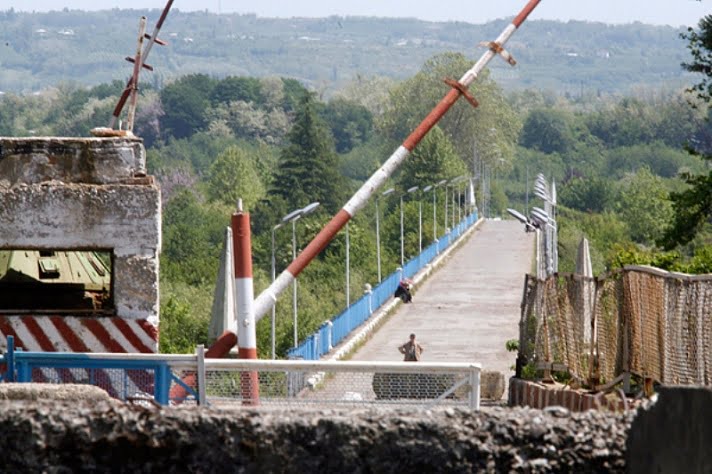Sergei Shamba, Kremlin-backed Abkhazia’s long-time former foreign minister and ex-prime minister, who was recently appointed as the head of the region’s security council, gave a lengthy interview to RFE/RL’s Russian-language Ekho Kavkaza, in which he spoke of prospects of trade and dialogue with Tbilisi, as well as the citizenship issue in ethnic-Georgian majority Gali district.
Dialogue, Trade with Tbilisi
Making the case for dialogue between Tbilisi and Sokhumi, Shamba said: “Look at Europe,…[…].. all of the countries there fought with each other, there were bloody wars, but today they do perfectly live and develop together.”
“It is impossible to live in enmity forever,” he highlighted, adding that “all of this [armed conflict] is over, thus we have to think of how to build friendly relations [with Tbilisi].”
Shamba maintained that “a range of unresolved issues” remaining between Tbilisi and Sokhumi requires dialogue and negotiations. “I have served as a diplomat for many years, hence I know, all of the problems need to be solved with dialogue,” he stated.
- Tsalenjikha Sakrebulo Chairman Charged for Transporting Illicit Tobacco from Abkhazia
- Abkhaz Ombudsperson Speaks of Rights Abuses of Gali Georgians
In this context, the Abkhaz security council head spoke of “legalizing” trade and preventing smuggling across the Enguri River, which divides Abkhazia from Georgia proper.
Although concluding an agreement with Tbilisi on trade would be unrealistic – for the latter’s rejection of sealing a deal with Abkhazia – Sokhumi could still introduce customs control on those goods “at the border,” Shamba stated.
Citizenship in Georgian-majority Gali District
In regards to the issue of passportization in Gali – easternmost Abkhazia’s ethnic Georgian majority district – Shamba said “we should not alienate these people as they are mostly indigenous inhabitants of Abkhazia.”
Shamba argued that denying Abkhaz ‘passports’ to Gali Georgians on grounds of their holding of Georgian citizenship is “wrong.” He recalled that the Abkhaz enjoy having Russian passports despite the fact that Sokhumi and Moscow have not yet signed an agreement on dual citizenship.
“They [Gali Georgians] now have the right to residence permit, but I think this is offensive to them, as their ancestors lived on this land, many of them were once Abkhaz,” he said.
“But I will not go deeper into this issue,” Shamba went on, “the racial approach is generally unacceptable in a civilized society, and even more so in [Abkhazia] where there is such a mixed population, such a conversation should not be a topic at all.”
“We should absorb them into the Abkhaz society, we must make them fully-fledged citizens of [Abkhazia], so that they support the interests of our state, participate in the building of our state, feel like citizens of Abkhazia,” Shamba underscored.
Background
According to the statistical data available in Sokhumi, as of January 1, 2018, 30,259 persons – with their absolute majority being ethnic Georgians – lived in Gali district.
Sokhumi stripped the majority of them off ‘Abkhaz citizenship’ in 2014 and in 2017 and started issuing residence permits to them, depriving Gali residents of their political rights and possibilities to participate in non-recognized presidential, parliamentary and local elections in Sokhumi.
During the 2019 “presidential elections” in Abkhazia, the local election administration had registered only about 900 voters – having Abkhaz passports – from Gali.
Administration of Aslan Bzhania, new Abkhaz leader, seems more open to direct dialogue with Tbilisi, than Khajimba-led Abkhaz leadership. Partly this is caused by the gaping hole in the budget, as cash-strapped Russia is reportedly withholding aid.
Also Read:
- Three Detained Georgians Released from Abkhazia Custody
- New Acting Head of Gali District Appointed
- Abkhaz Decry Russian Party’s Proposed Referendum on Annexation
- Abkhaz, S. Ossetian Leaders Vote for Putin Constitutional Amendments
This post is also available in: ქართული (Georgian) Русский (Russian)

